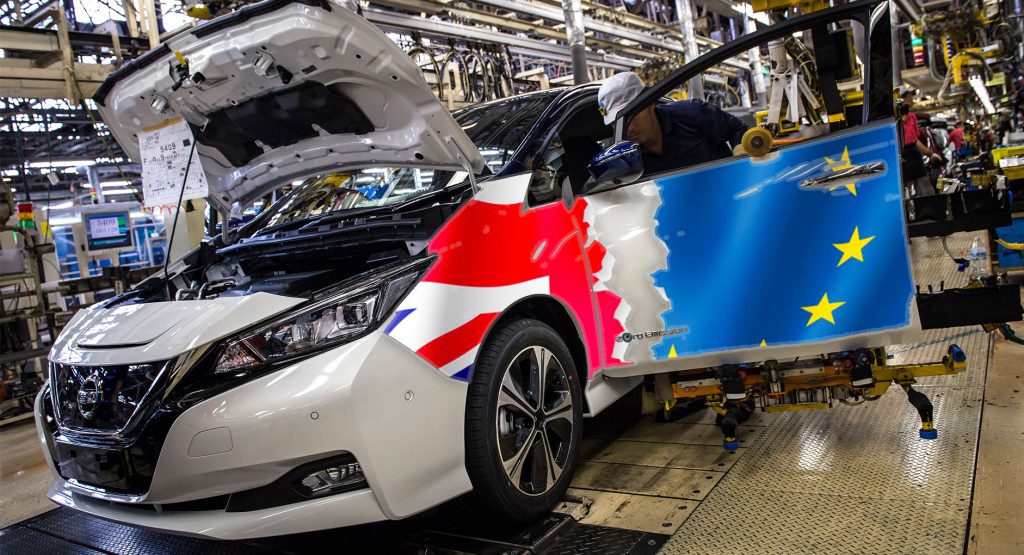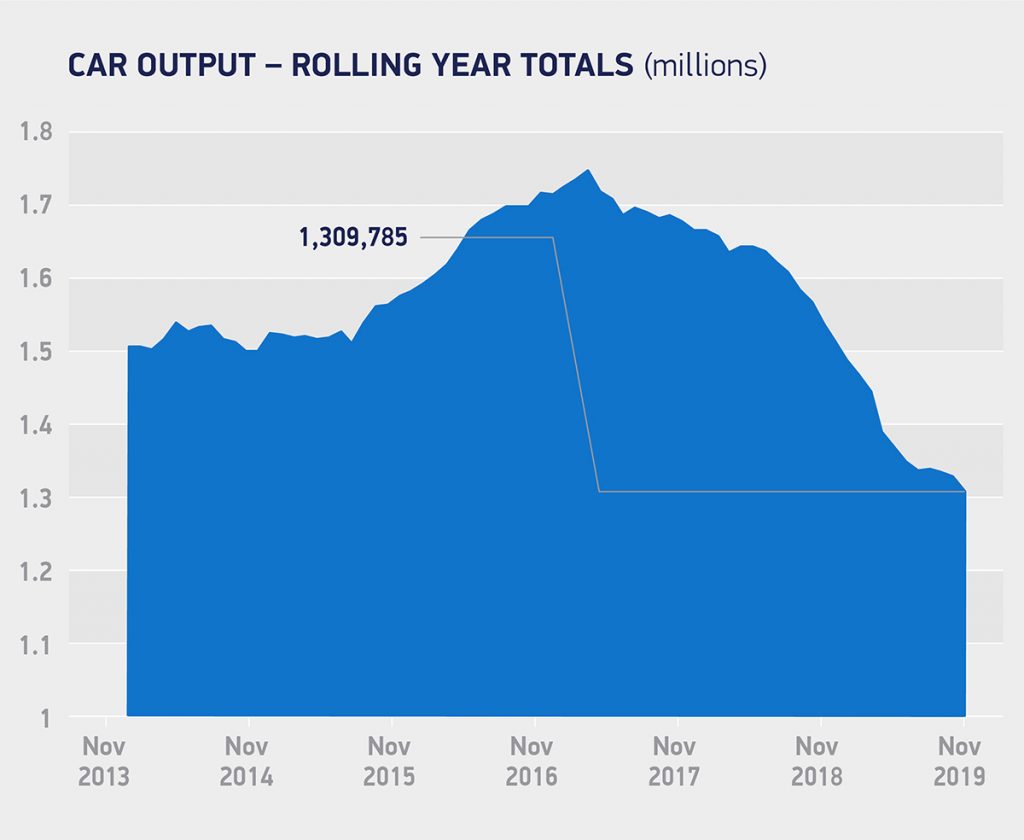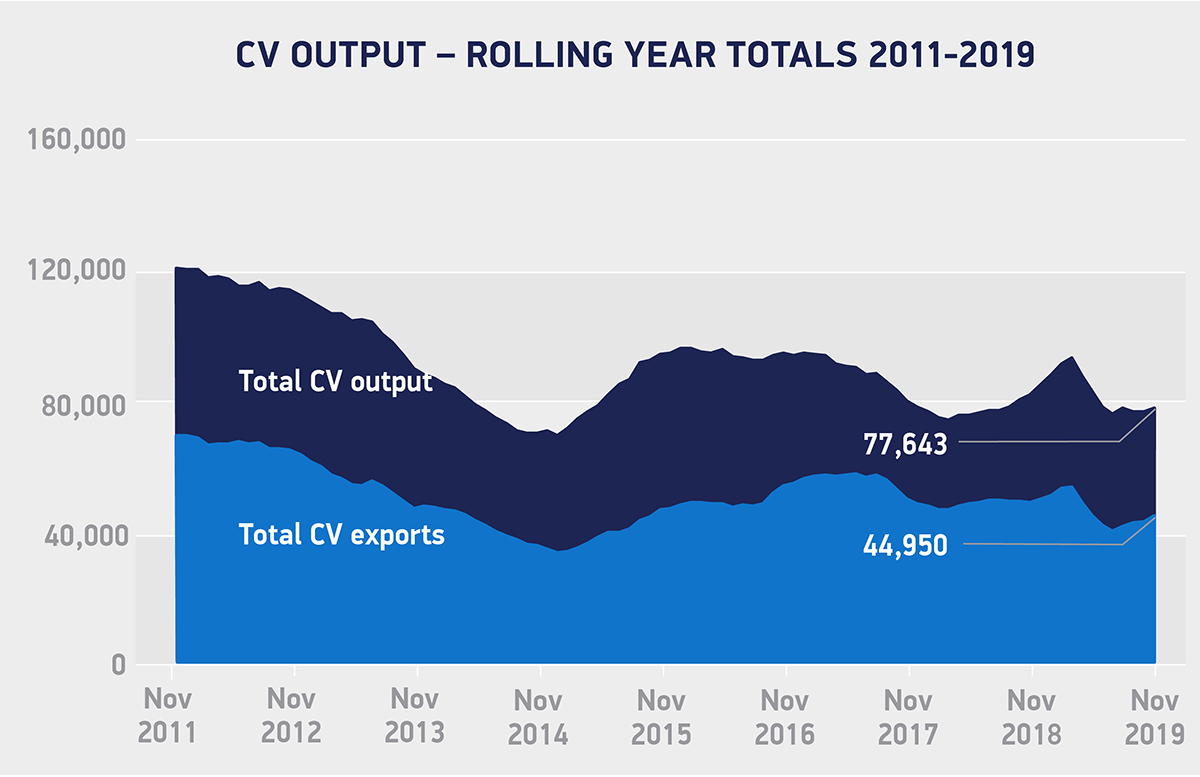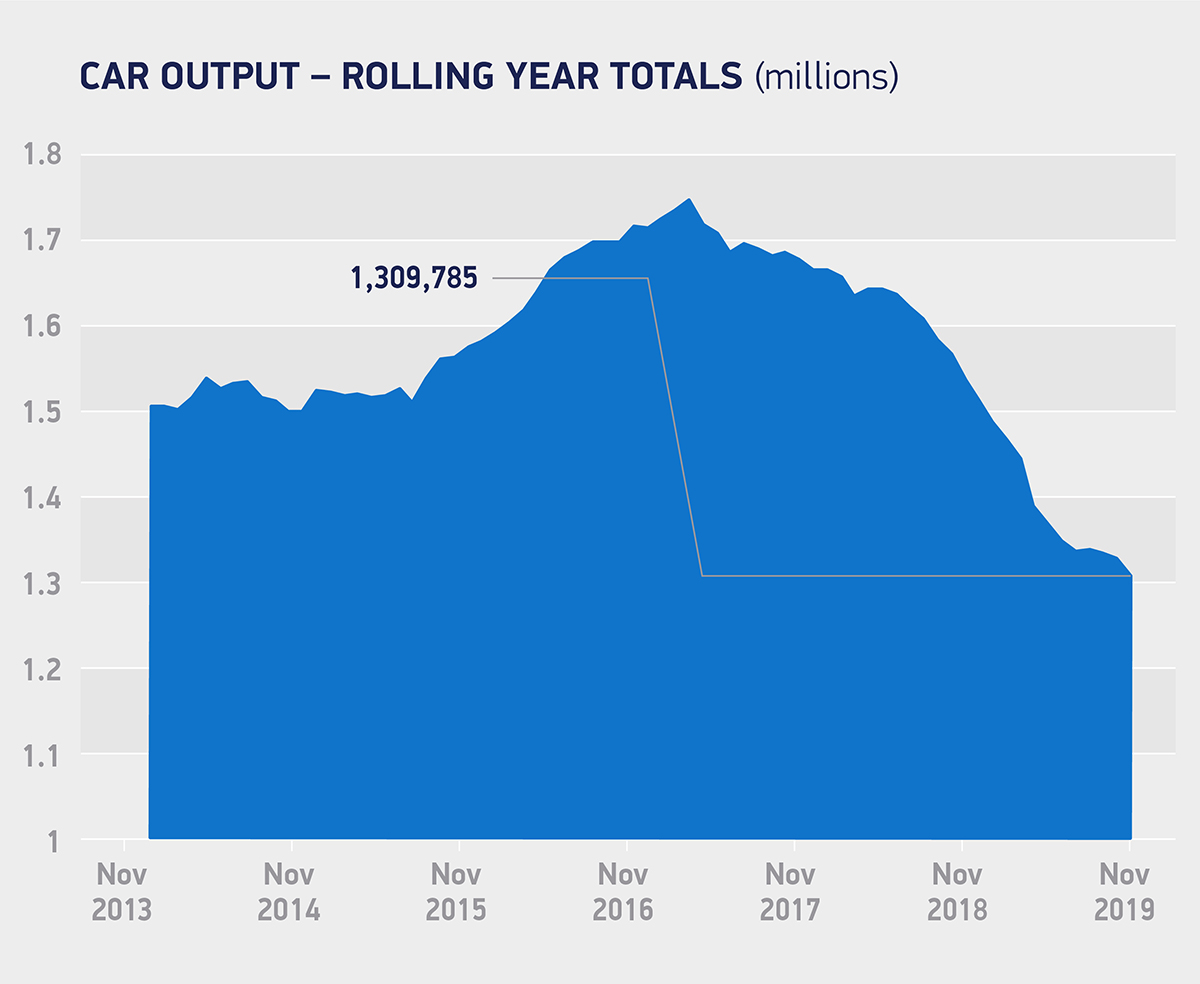UK car production output fell by a significant 16.5 percent in November to 107,573 units, as demand in both home and overseas markets decreased.
Output for the UK market dropped 26.6 percent, while the production destined for export markets fell 14.2 percent. According to the Society of Motor Manufacturers and Traders (SMMT), year-to-date car production decreased as well by 14.5 percent to 1,231,679 units.
Worryingly, UK car production has now fallen in 17 of the last 18 months. While there’s no simple explanation for such a consistent drop in vehicle production, SMMT says the most important factors are soft consumer and business confidence, as well as weak demand in overseas markets and model production changes.
Related: Automakers Warn UK Of Billion-Euro Losses In Case Of A No-Deal Brexit
November’s poor performance is also attributed to the factory shutdowns around Halloween. Those were mostly planned closures to mitigate against any disruption arising from the potential departure of the UK from the EU without a deal on October 31. These stoppages add to the list of costly Brexit contingency measures implemented by the automotive sector, a bill that SMMT estimates to stand at more than £500 million ($652 million).
A no-deal Brexit could hit the country’s car manufacturing sector very hard as the majority (80.8%) of the UK’s vehicle output heads for overseas markets, with most of these exports (54.7%) going to the EU. SMMT is urging the UK’s new government to deliver “an ambitious trade deal with the EU.”
“To ensure our competitiveness at a time of dramatic technological change, that deal needs to be tariff free and avoid barriers to trade, which, for automotive, means that our standards must be aligned,” said Mike Hawes, SMMT Chief Executive.
Prime Minister Boris Johnson won the elections last week and pledged that Britain would leave the EU by the end of January 2020. However, there will be a transition period until the end of next year during which time little will change in the UK’s relationship with the European Union. This means much of 2020 will be dominated by negotiations between London and Brussels on a future partnership that will take effect from 2021.










